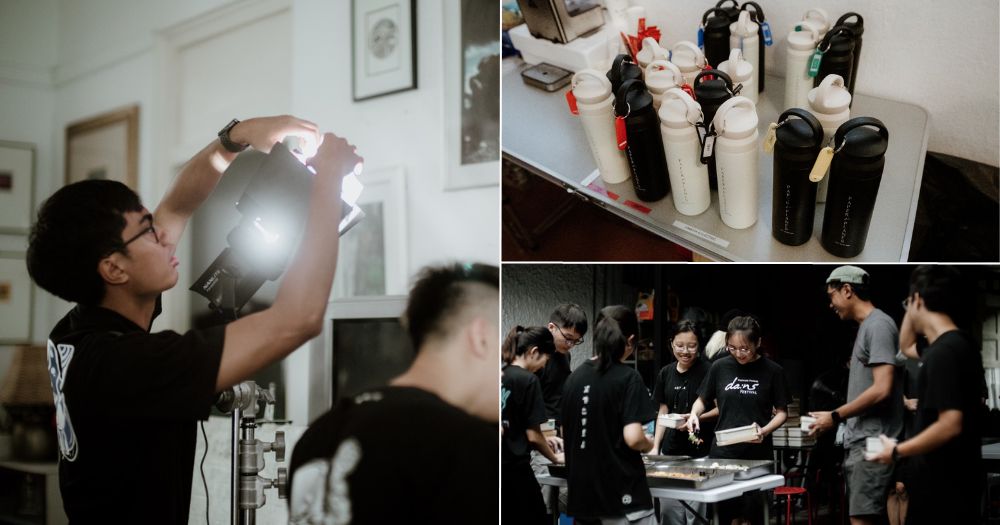Follow us on Telegram for the latest updates: https://t.me/mothership sg
From food waste, food containers, paper to plastic bottles, a significant amount of waste is created during the typical film production process.
A team of students from Nanyang Technological University (NTU) embarked on a journey to make the filmmaking process more environmentally friendly by reducing and reusing materials for their final year project wherever possible.
Leading the team behind "Paper Planes, Don’t Always Soar" is producer Terry Tan De Hao.
Tan shared that he was inspired by his experience working on his senior's set -- which implemented a no-plastic-bottle policy on set and established on-site recycling points -- and hoped to take the idea further.
Replacing disposables with reusables
The 25-person crew committed to drastically cutting down on the use of disposables.
Instead of getting individually-packed food, meals were served buffet-style on metal trays, and reusable containers were provided to each crew member through a collaboration with the film's partner Gift Market.
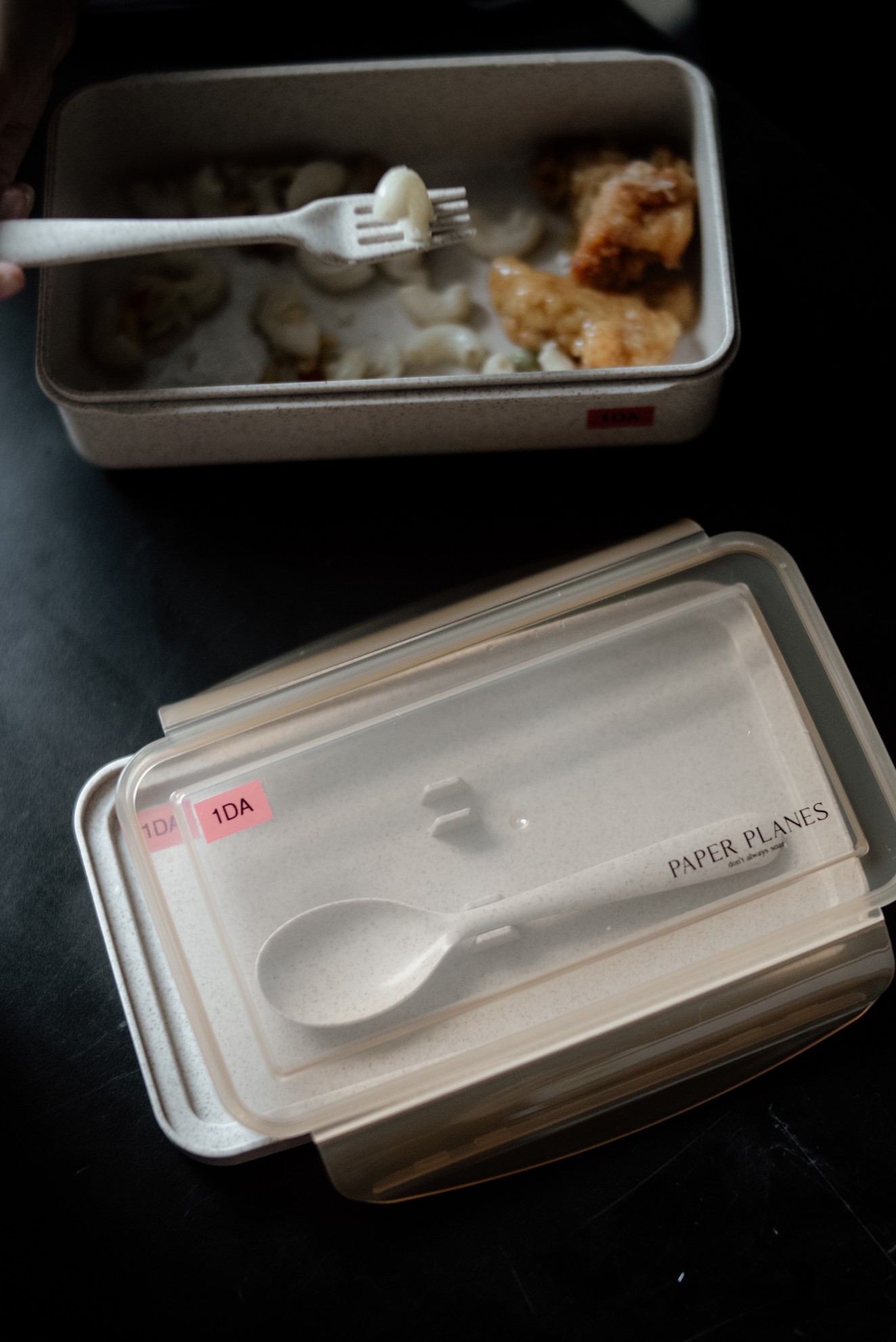
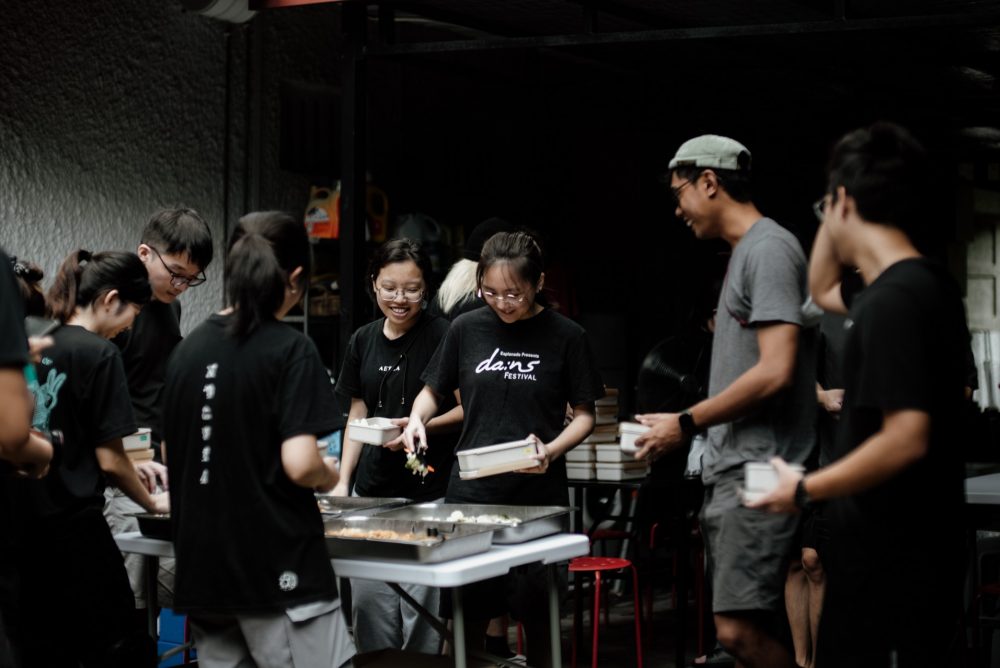
Between meals, the production team collects the lunch boxes, washes and dries them for use again.
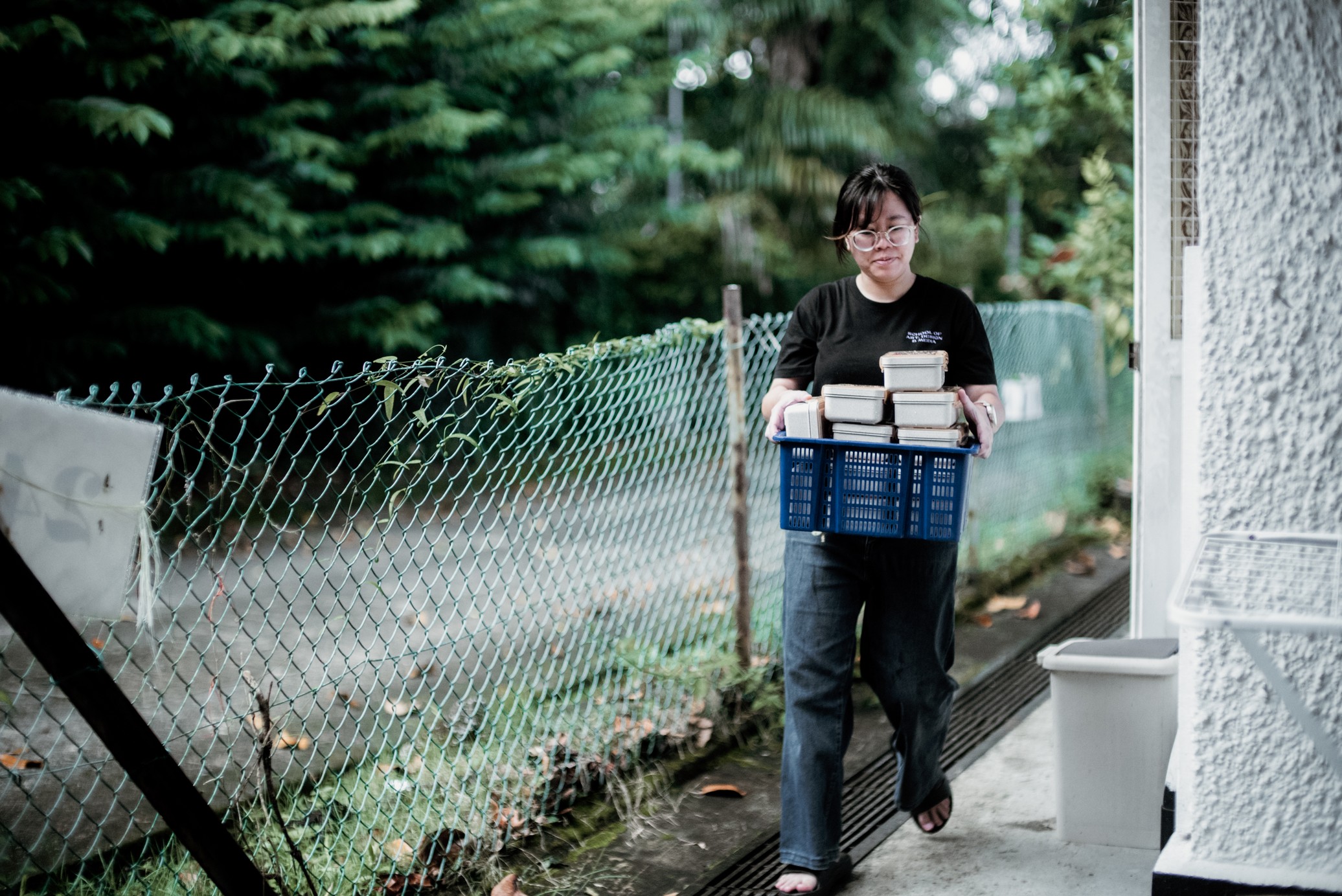
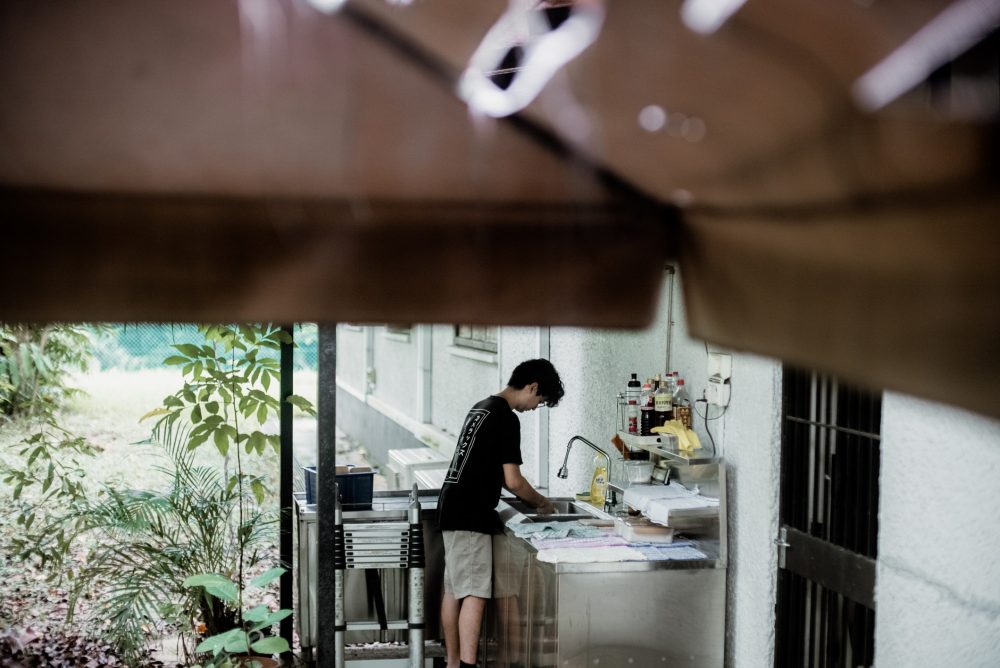
The crew would also bring home any excess food using their own reusable containers to reduce food waste.
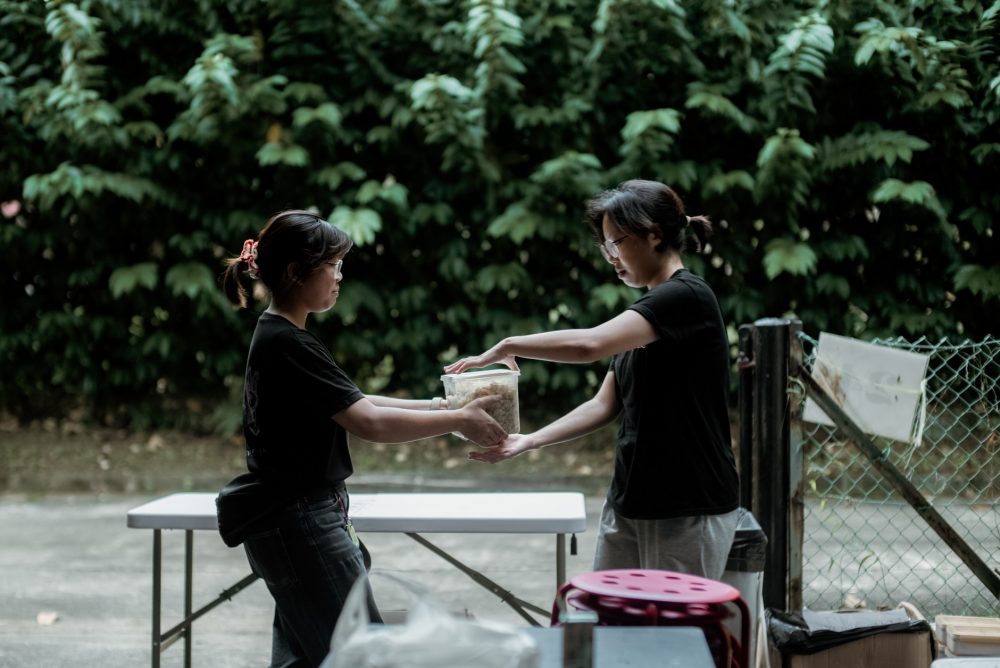
For the duration of filming over five days, approximately two meals were served during each 10-to-12-hour day.
The team estimates that it managed to cut down on 800 disposable containers and cutleries.
Thermos water bottles were also provided to every crew mate, avoiding the use of around 250 single-use plastic water bottles through the use of a water dispenser available on set.
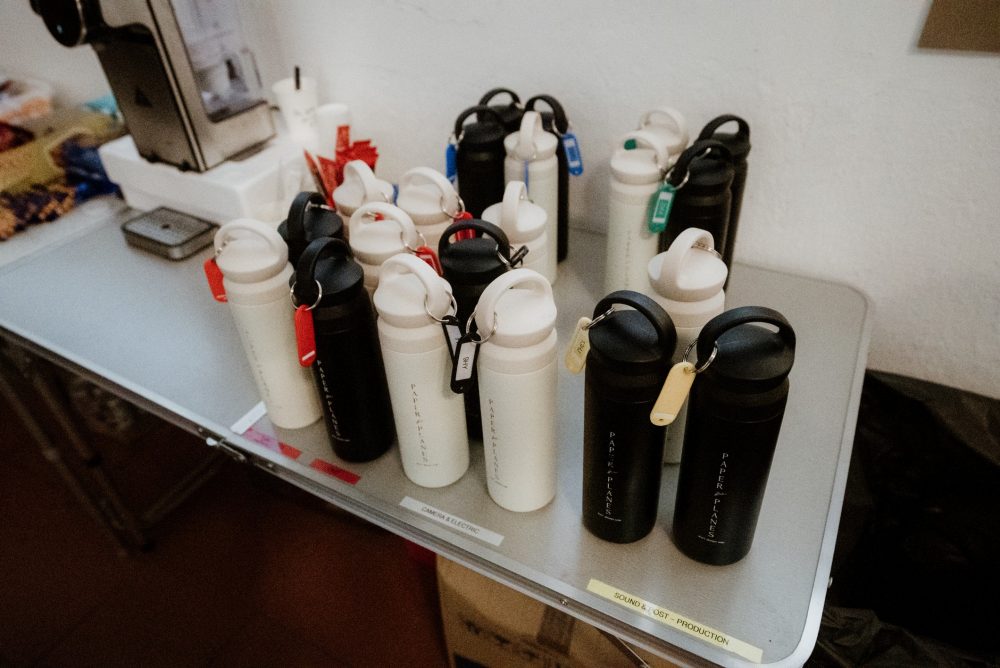
Both items were part of the film pack provided by the team, not only to promote environmental consciousness but also as an appreciation gift to crew members for keepsake.
Secondhand wardrobe and props
For costumes, the team worked with Cloop, a local clothes swap organisation.
The team's art director handpicked the cast's outfits from the Cloop store at Sprout Hub, giving a second life to these used clothes.
It turned out that they did not have to purchase any new items, as in addition to the cast's own wardrobe, secondhand clothes were found with ease due to the wide selection of garments available at Cloop.
150 second-hand set of apparels were selected from Cloop, which helped to avoid the purchase of 15 sets of new apparel, the team estimates.
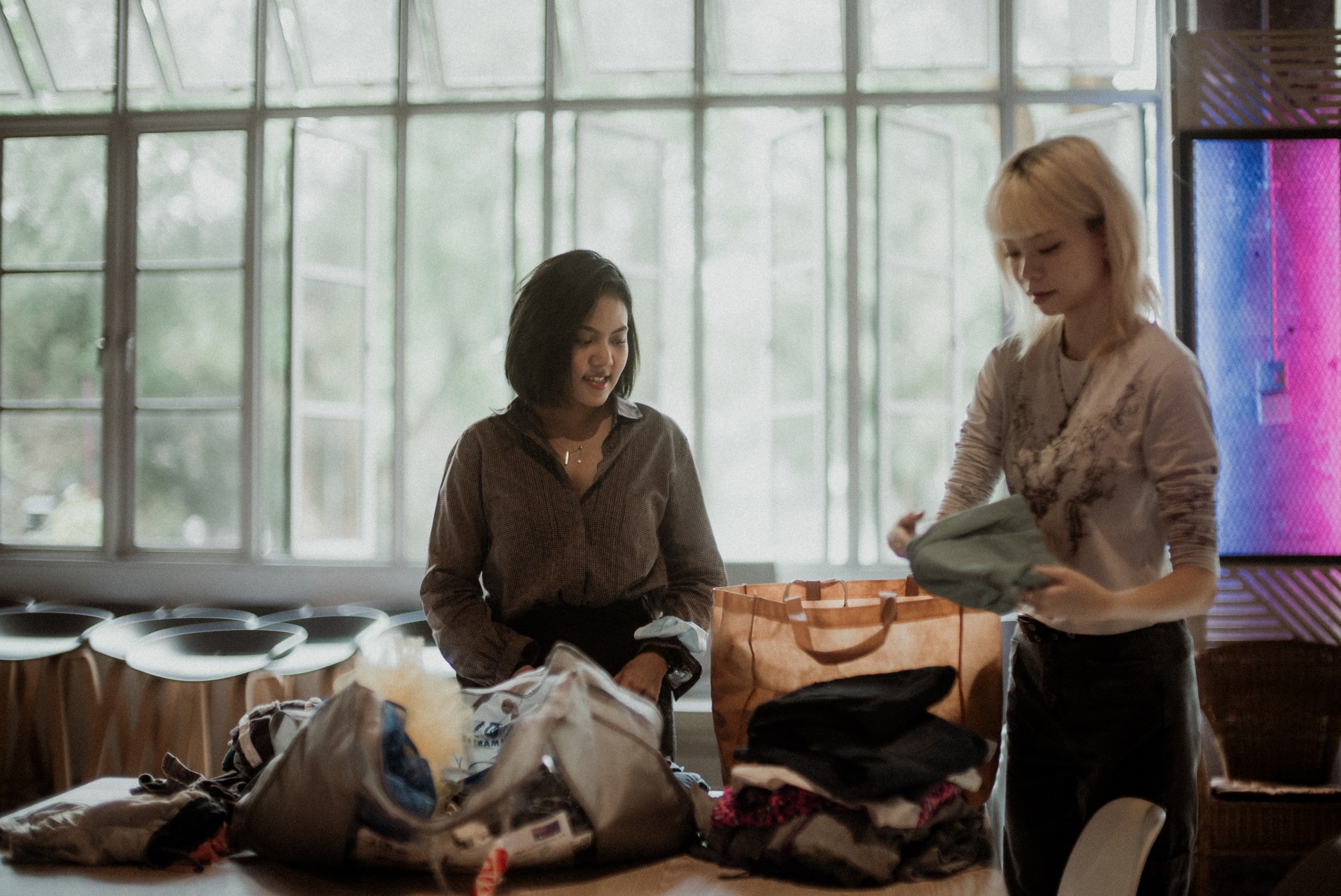
Rather than purchase new props, the team also managed to use 25 pieces of upcycled set decorations sourced from their households to feature in the film.
Greater workload
Other green measures the team implemented include using rechargeable batteries, recycled paper and energy-efficient LED lights in place of traditional tungsten lights.
Recycling stations and composting bins for food waste were also made available.
Altogether, the workload that came alongside these practices were not negligible, particularly the washing of lunch boxes, said Tan.
Given the extra logistics and time needed for the initiative, the team hired an additional production member and additional planning had to take place, such as in choosing a filming location with a water point and a sink.
To manage the initiative, one of the crew members was designated as the Green Officer, helping other members to clear the recycling corner and refill their bottles.
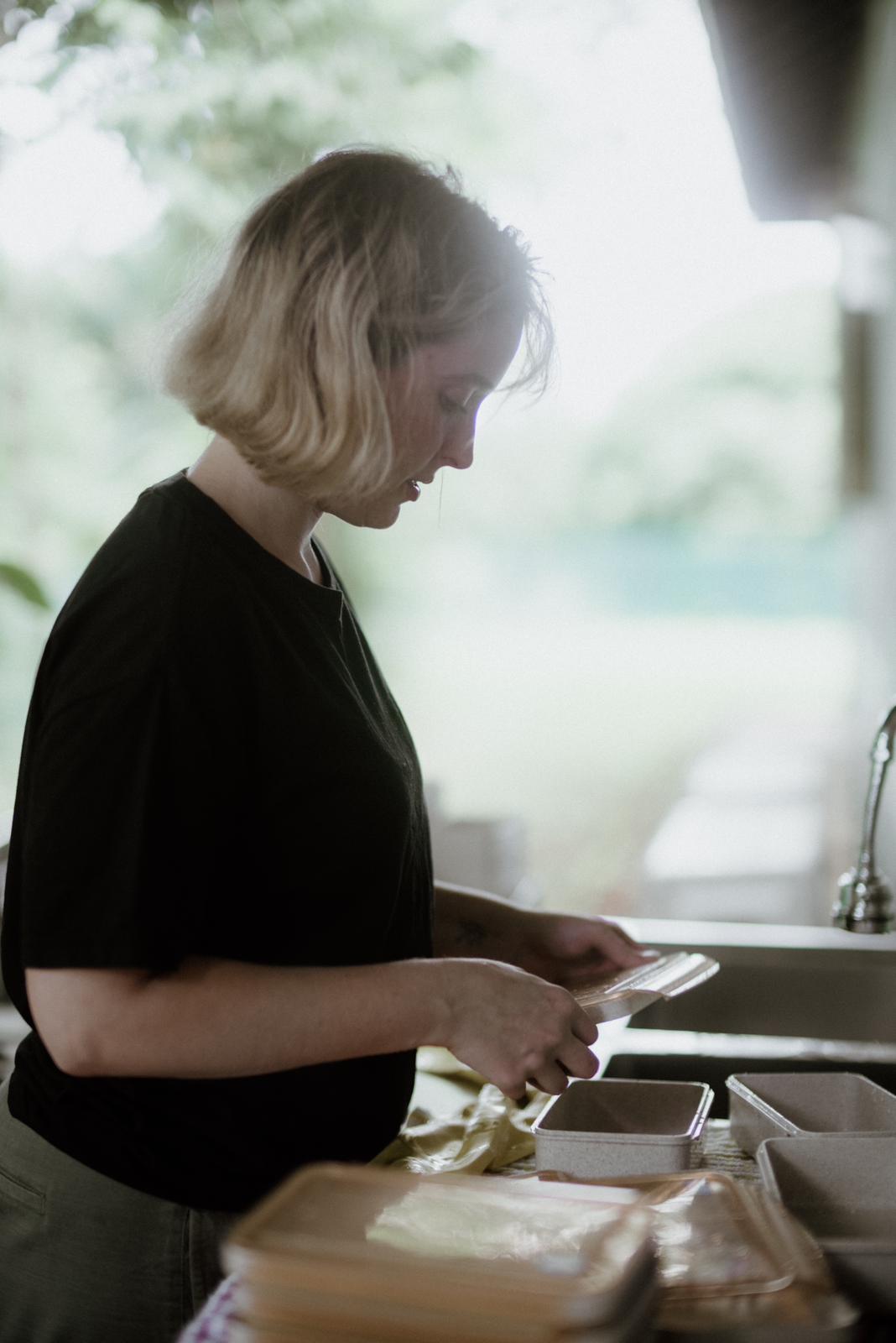
The fellow student was actually an exchange student from Australia, who had previously worked with in production crews that also adopted such practices.
These green initiatives are more common abroad, with several European countries even providing grants and guidelines for film crews that incorporate sustainability in their workflow, Tan added.
An overall success
In a film production, things need to move fast and it is crucial to maximise time and money.
This was a balancing act for the team.
For example, the crew shot outdoors in a remote location on one of the days. Despite their best efforts to eliminate disposables completely, the team did not manage to use their lunchboxes due to the lack of manpower and accessibility to a washing point.
Fortunately, throughout the filming duration, the crew were supportive of the initiative, and Tan noted that some of them still use their lunchboxes and bottles months after the fact.
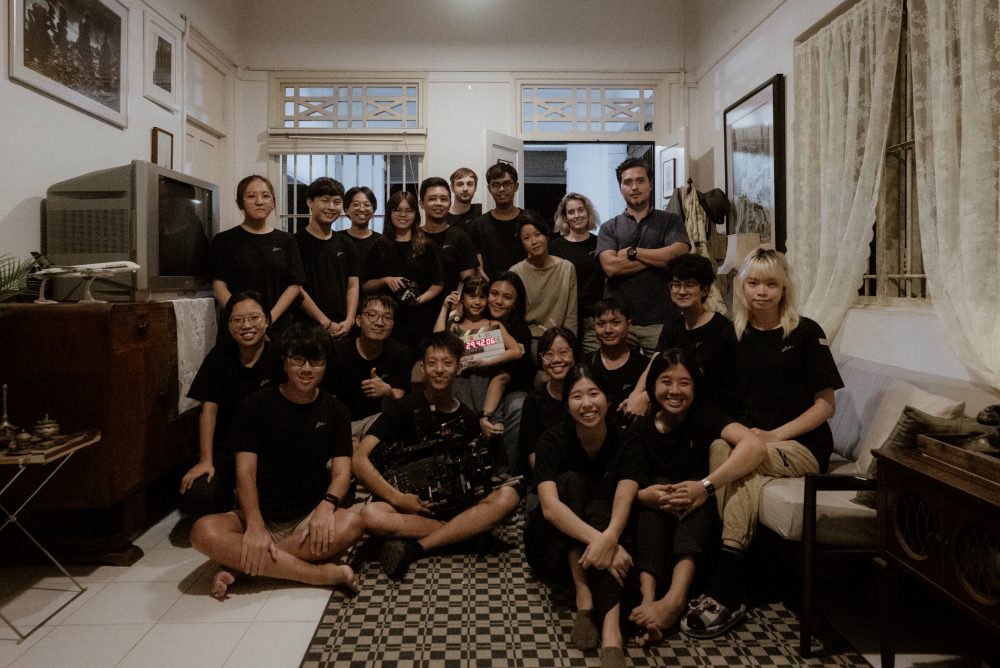
In general, Tan believes that the initiative was a success in demonstrating the feasibility of going green on set.
We hope that our initiative can serve as a blueprint for others to follow. If a small team like ours can successfully implement this, we believe that the larger players, armed with more resources and budgets, can certainly do the same, if not more.
"Paper Planes, Don't Always Soar" is having a private screening at the Matchbox, & you're invited!
Where: 30A Kallang Place #05-05, S339213
When: June 24, 2023, from 6:30pm to 9:30pm.
How: You can express your interest via paperplanes_film on Instagram or email [email protected] and they will send you an invitation card.
https://mothership.sg/2023/06/plane-crash-survivor-paper-planes
All images via Paper Planes Film.
If you like what you read, follow us on Facebook, Instagram, Twitter and Telegram to get the latest updates.

